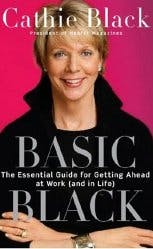As a member of the Baby Boomer generation, I have always been in the minority when it comes to dealing with Millennials in the workplace.
To me, managing is the ability to deal effectively with different types of people, and the challenge is in being able to bring all of those various personalities together effectively to accomplish the task at hand.
It’s what managers do, and what they have done as long as there have been managers. And it’s why the notion that Millennials – the younger generation that is now moving in large numbers into the workplace – need to somehow be managed differently, has always stuck me as a lot of BS.
No better or worse than any generation before
Here’s what I wrote about this back in 2009:
I’ve said this before and I’ll say it again: The Millennial generation … is no better or worse than any other generation that came before. Yes, they have their own unique generational issues, but in my close experience with them, Millennials reflect what you find in other generations and society as a whole—some are good, some average, some clueless.
In my personal experience with the Millennial generation — I hate the nonsensical and meaningless Generation Y tag that some use to describe them — I have found that there is no one way to characterize or manage them. The three Millennials that I am closely related to are as different as any three people you would find on a street corner. And the classroom of Millennials that I teach writing to each semester at a local university follows this same pattern…
The notion that the Millennial generation is so unique and different from generations before them is nonsense. They are different, yes, but so is every other generation, and it’s something that managers have dealt with long before pricey leadership coaches came along and decided we needed their services.
To me, this is just another way to bash the Millennial generation and prey on insecure (or clueless) managers and executives in order to squeeze a few dollars out of them.”
Nothing that has happened since I wrote those words 18 months ago has changed my mind or made me reconsider any of that – and my TLNT colleague (and card-carrying Millennial) Lance Haun seems to agree.
A big time executive who “gets” Millennials
That’s why it was refreshing to read comments from a big time executive who finally acknowledged that, yes, managers and HR professionals need to make adjustments to Millennials just as they do every other generation and personality type.
The executive is Cathie Black, someone who has worked in a number of high-level positions including CEO of Hearst Publications and publisher of USA Today. As Ron Thomas noted in a TLNT post last week, Black was recently named by New York Mayor Mike Bloomberg to be the next New York City schools chief.
There’s a lot of controversy over Black’s appointment, but I was encouraged to read these comments from her concerning Millennials (although she doesn’t actually use that term) in The New York Times’ Corner Office column this past weekend. Here’s what she said:
If you talk to a young person today, if they’ve had a job for 11 months, they’ll say, “Why haven’t I been promoted?” Or, “What’s next?” It’s really quite amazing. They want to be on a path for a new position.
We have to learn to take chances on people who are a little bit younger than we would have hired in the past. You’re always weighing experience versus enthusiasm. Are you willing to take a chance on someone who has all of the enthusiasm going for them, but perhaps they don’t have much experience? I think that’s particularly relevant in the digital space today.”
Maybe you noticed, like I did, that Black didn’t bash Millennials (younger people, as she describes them) for wanting to advance and get promoted in a time frame that seems pretty quick by Boomer standards. No, she instead made the point that managers and executives need to be willing to take more chances on younger and less experienced people.
An adjustment EVERY manager needs to make
That’s a pragmatic and reasonable point of view, the type of adjustment that any smart leader needs to be make – and flies in the face of what you hear from all-too-many Boomer managers.
But, Black also added this gentle and reasonable bit of generational advice:
When young people are weighing the pros and the cons of another job opportunity, I tell them to be careful about believing that the grass is always greener somewhere else. On the other hand, if it’s going to be a life-changer or a career-changer move, with some reasonable amount of security or success, then I think it’s worth a shot. I’ve always thought that if you’re passionate about something, then you should just be bold in your ambitions.”
I don’t know all the ins and outs of the controversy over Black’s nomination to be the next chancellor of the New York City school system, but someone with the degree of pragmatism, wisdom, and common sense management savvy she exhibits when talking about a certain segment of workers surely must carry over to how she would operate as head of the NYC schools.
Maybe I’m easily impressed, but I found her comments about Millennials to be refreshingly spot-on — and I don’t read, hear, or see much of that coming from many Baby Boomer managers today. Here’s hoping we all see a lot more of this, and, that we’ll soon quit talking about Millennials as if they’re visitors from Mars.
